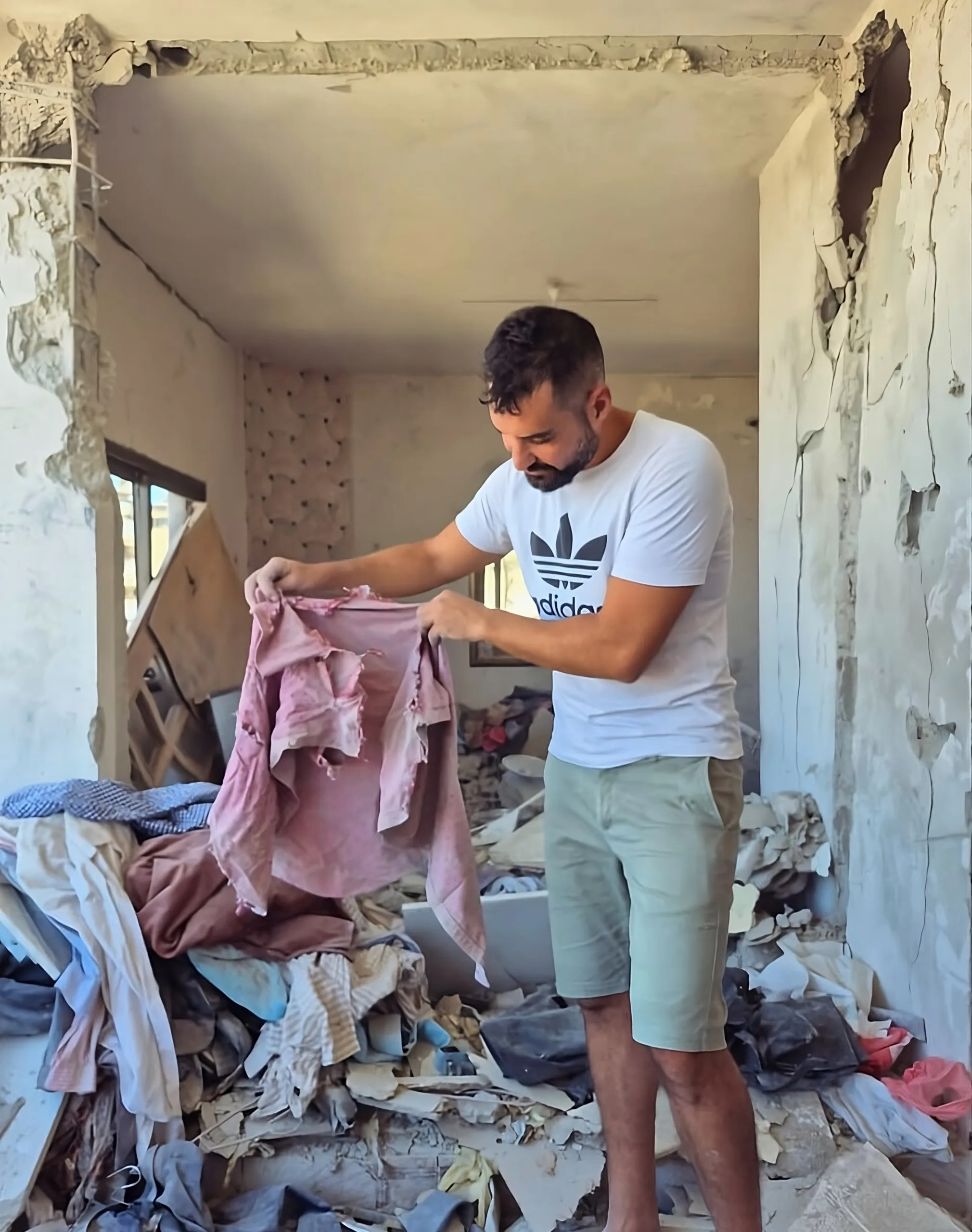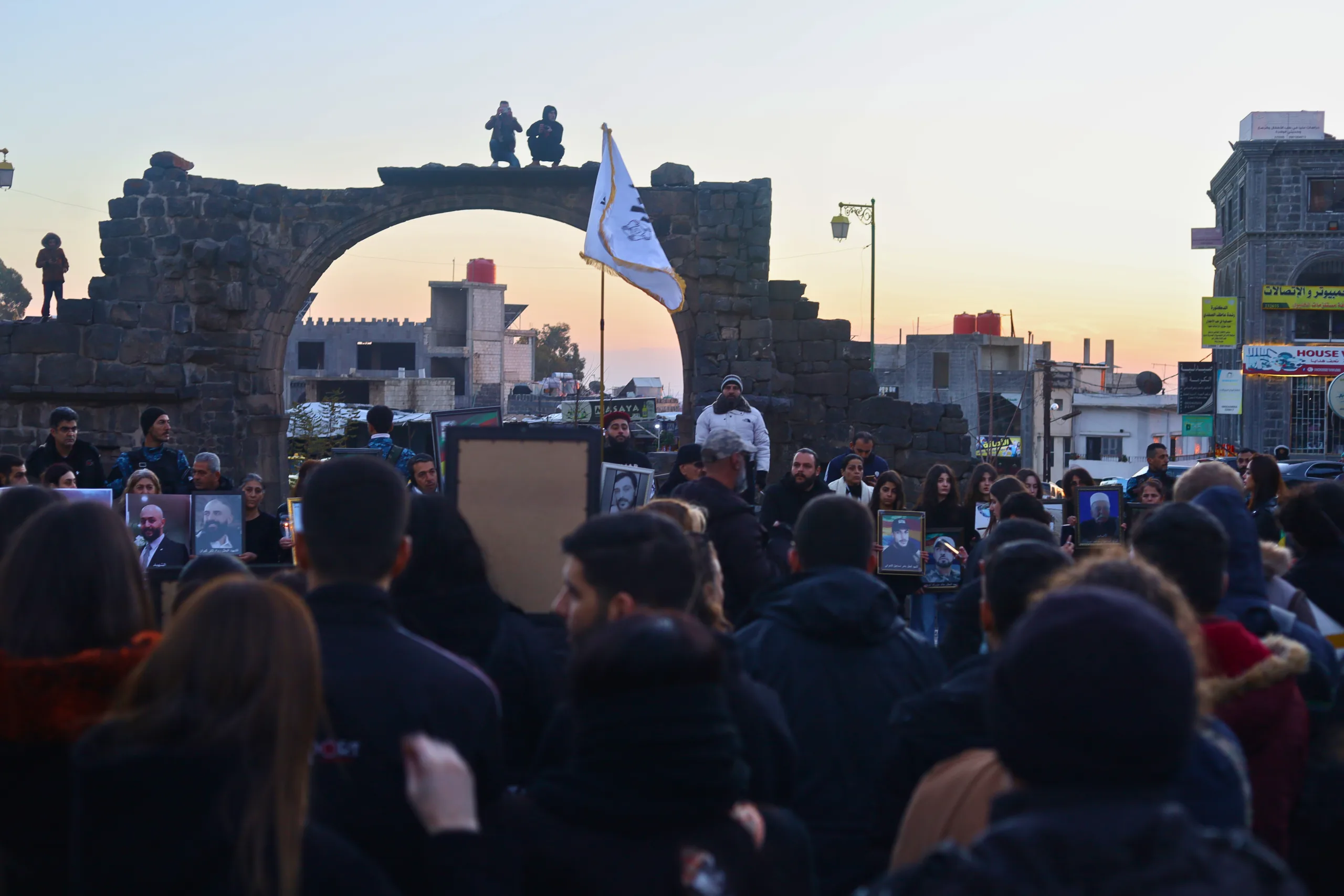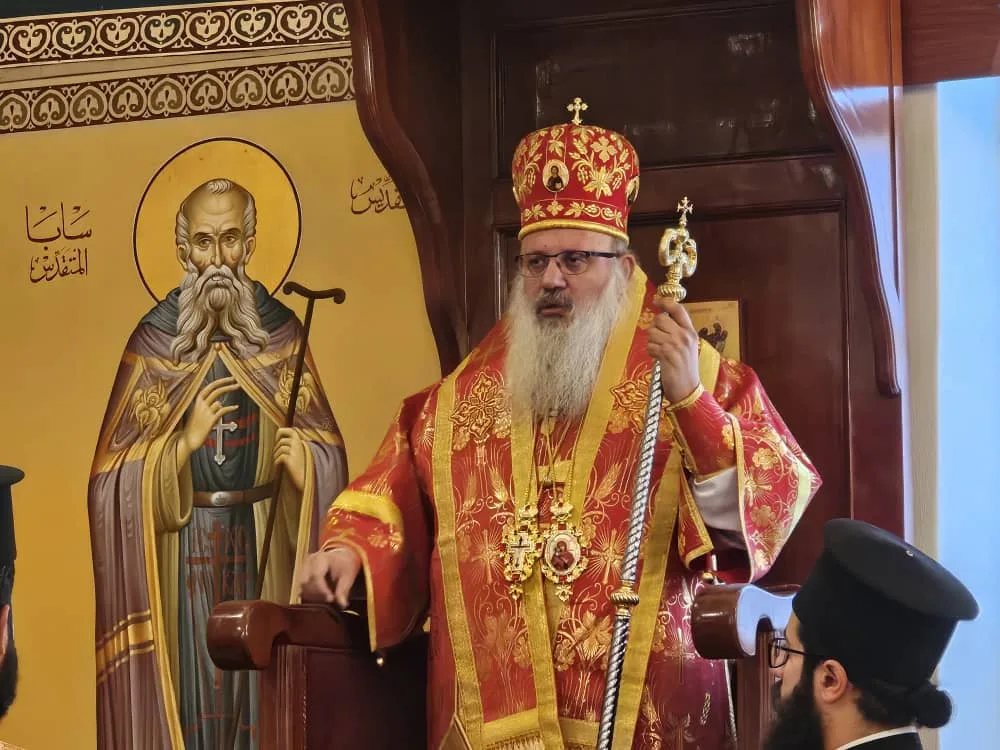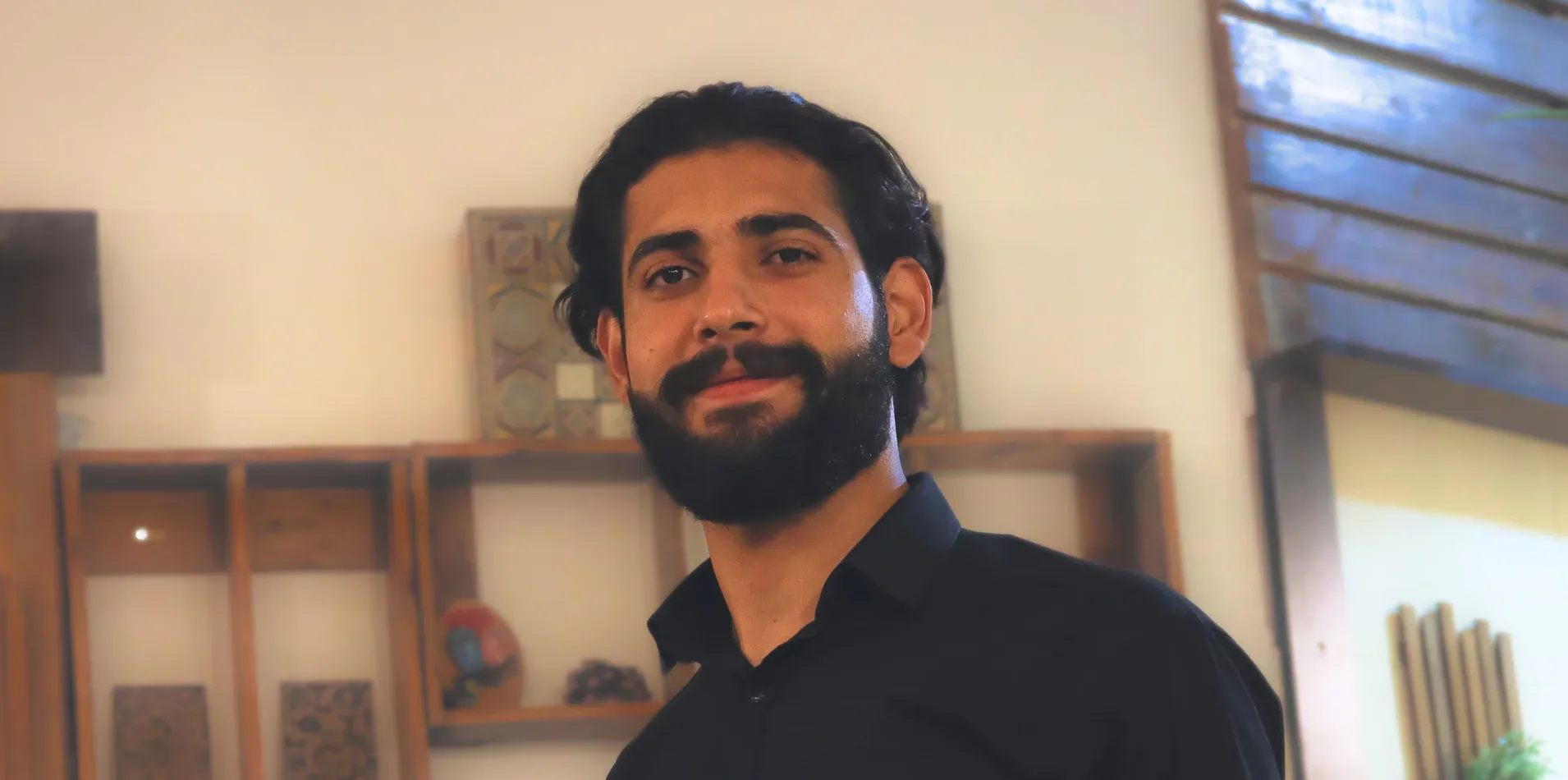No sirens. No magic formulas for survival.
Only luck, which looks like a clown walking along the margins of the killing columns that pushed into Sweida from its western and northern countryside to the city’s heart. The city that is Zidan’s home, a stopover of old comrades, family, laughter, and small joys.
After years abroad and after the fall of the Assad regime, Zidan returned to his village, Ta’ara. He renovated the family house and bought an apartment in the city of Sweida. He furnished it carefully and hung his elegant shirts and suits, preparing for a quiet, comfortable life after the hardships of exile and work.
He did not notice that this lands grants dreams only to swallow them, and that the ground here heaves whenever it wants. On the morning of July 13, Ta’ara became a gateway for an incursion that drove its people into the cracks of the rough terrain to chisel a threshold for exile, their bodies scattered across the earth. Their belongings poured into shelters of cold and thieves. They left their bodies behind like a scattered covenant.
Ta’ara and thirty-five other villages had their torments told to us by fire. The troops encircled the land of the massacre, and their looters prowled over the martyrs of the homes.
Zidan and his family’s bodies survived. They drifted east toward the city and took refuge in his new apartment, 25 kilometers from the family house.
On July 14 the columns of death reached the city. Terror roamed every corner and every home. Behind doors, knees trembled like a spider’s joints. Mothers caught their children’s whimpers and stifled them. In the neighborhoods, tanks crushed and tore up the roads. They stormed houses and hurled people from balconies.
Once again, Zidan survived. As the columns of death entered the city, he moved with his family to far villages in the mountain. Only an hour after they left, a tank stopped on the street opposite, turned its barrel toward the apartment, and fired a shell that pierced the wall behind which the wardrobe was installed. The apartment exploded and became rubble.
By phone, his neighbor, who had spent the day of the attack trapped in the building’s basement, told him that his shirts and bedsheets were scattered along the alley. He also told a joke that cleared the rubble that had formed on Zidan’s chest after the news: “Thank God you weren’t wearing them.”
Damage in the apartment next to Zidan’s was limited, and the rest of the units in the building were untouched. Only Zidan’s apartment was destroyed. It felt very personal. They had been pursuing him since 2008, since he decided to travel and work, then return to settle among his people. Today they came to shell the final stage, the stage of settling down. Those attackers are clever and philosophical. They know well that dreams die once they come true, and today they came to bury them.
However grave and heavy Zidan’s calamity seems, it does not compare with the atrocities that poured their lava onto the residents. The cruelty is not uniform; it has tiers, each following the way the violation is executed.
The columns of death and their clown distributed the shares of killing, and that was Zidan’s share.
Fifty days after the bloodshed, Zidan shows no hint of despair. He keeps visiting his destroyed apartment, crossing the al-Umran neighborhood, which the attackers favored with a large share of destruction. They set fire to homes and shops, leaving phrases on the walls as messages of fear. What irritates Zidan the most in those messages are the spelling mistakes. “We came to slaughter you” is terrifying when written on the walls with a spelling mistake. Zidan said.
On every visit, as Zidan passes the burned homes and shops, his mind runs comparisons between people’s shares of death and ruin. The debate keeps circling in his head until he reaches the threshold of his own wrecked home. The smell of burned houses leaves his nose, he finds himself in front of his own destruction, at least a ruin with the same color of the apartment itself. When it is rebuilt, it will lose its memory forever.
On those visits Zidan makes piles of torn belongings. He digs for things whose places he remembers and guesses under which patch of debris they might be found. In the past few days he found personal photos, documents, and expired passports, all ripped and crushed. Only the valid passport he found intact, like an invitation to depart.
The first pile he made was for the shirts and suits, some of which he had to pick up from the neighborhood after the blast scattered them. The shirts in particular were torn in different ways: sleeves cut off, holes, a crushed collar.
“Every time I find a shirt and put it on the pile, I remember my neighbor’s joke. Luckily, you weren’t wearing them,” Zidan says.
He meets almost daily with surviving old friends. Their share of the destruction, along with some 150,000 displaced from 36 villages, is the loss of everything and a hope of return that keeps fading. All this under a suffocating siege and inciting rhetoric surrounding what remains of the city, threatening a new incursion and new shares of killing.



